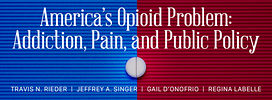I am in favor of removing the DATA 2000 waiver, as it adds another impressive hurtle to offering life-saving treatment. However, most physicians have little knowledge about prescribing buprenorphine or regulations associated with maintaining patients on buprenorphine. So at this time I would require that at most 2-4 hour learning modules be completed with test questions at the end similar to other CME offerings, and specific to the specialty.
Once all medical schools are required to incorporate this training in their curriculum, it will no longer be necessary.
That being said, I understand the issues that we must address to prevent a recurrence of the “pill mills” that sprung up after the oxycontin debacle. We need to think carefully what oversight and regulations are in place that will not impede patient access to care, but prevent unscrupulous prescribing.

